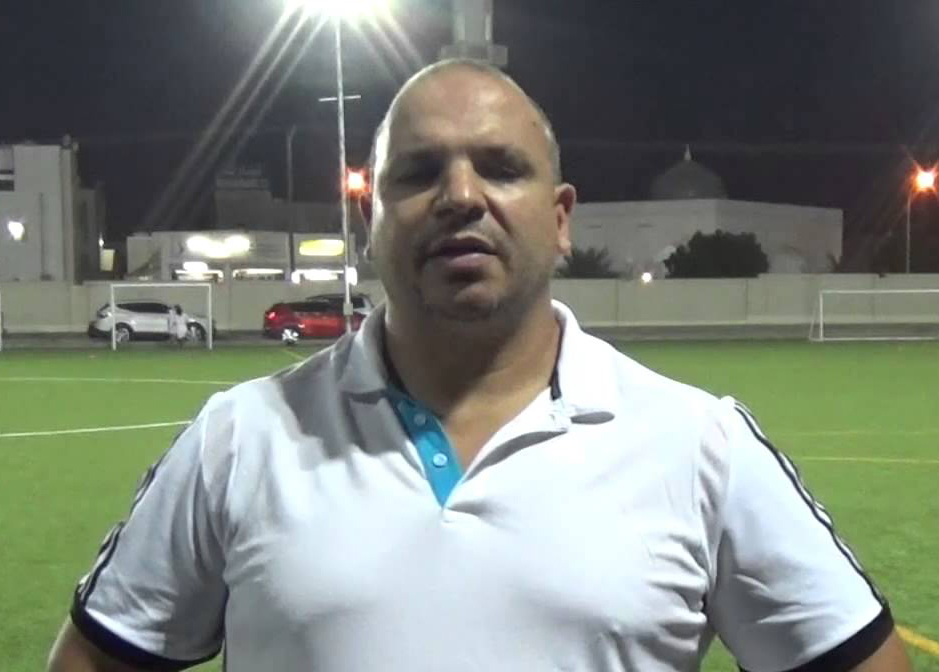
Chuck Martini is one you’d call affable and gregarious. The current Head Coach of the Muscat Football Academy is only too happy to speak to the media, and I managed to get him to talk about his past experiences in football, before he moved into coaching. The revelations of the former goalkeeper, who represented Morocco at international level, and played for Leicester City, AFC Wimbledon, and Wycombe Wanderers in the UK, before playing stints in the United States and managerial experiences back in Britain, were truly insightful, and deserve to be shared with everyone.
What was it like to go with Morocco to the 1994 World Cup?
To see all these stars and to see all these household names competing for the greatest prize in world football, of course it’s an honour and a fabulous experience. The only disappointing factor is I didn’t get any minutes. I was judging it from the bench. I wouldn’t have swapped the world for that experience. Obviously, I would have loved to have tasted it and playing out there in front of the many thousands and the many millions who were watching it on TV but I wasn’t to be and it was never to be in terms of a World Cup.
What’s it like to play for your country?
I feel blessed that I played professional football, that I was able to represent my national side on a few occasions and it’s a massive honour and it’s something that I will take to my grave. My family and I moved to Britain at the age of three, but we always used to come back home to Morocco for our summer holidays, so my birth nation is very close to my heart and representing it was a very easy choice to make.
Tell me about your debut
I won four caps for my country and made by debut in a 2-1 win against Gabon. I remember how terrified I was. The reason why I was terrified, I was just thinking ‘I’m a goalkeeper and I just don’t want to make a mistake’. I don’t think you feel a sense of pride at the time. You’re more nervous about not letting the nation down. You don’t want to mess up otherwise you don’t get the opportunity to play again. With a club sort of thing, you can make a mistake, it’s only your club, but with your country, when you’re standing there and you realise that you are representing all of the people of this vast country, that’s a truly humbling thing.
When you make a mistake and it’s your country, and people are writing bad things about you, you don’t want to picture that. I remember, I was nervous until I touched the ball the first time, and then your adrenaline kicks in and it’s all about the game.
With football fixtures being so packed these days, why are clubs too reluctant to let their players represent their nations.
Despite the honour associated with playing for one’s country, the reason clubs are reluctant to let players leave is because they are afraid their players will get injured and hamper their teams. Clubs are paying their players a fortune and they don’t want them to go and play in a game that could see them get injured, with realistically no real compensation because FIFA rules state that when a national team calls up their player(s), they have to go. The concern there, is that injuries that players pick up will severely dent a club’s hopes of capturing silverware.
Is there an exception to this rule?
Of course, but you must understand that the clubs look at any player they are planning on investing in from a perspective of business. You know, they think of it like this: ‘we’re paying him so much money, there is no need for him to turn up to an exhibition match’.
Yes, obviously, when a player is called up to represent his country for World Cup Qualifiers, South American Qualifiers, African Nations Qualifiers, European Qualifiers, all that is fine and clubs generally allow that, but if a player is just going out to play friendlies, they then think ‘well no there’s no reason for us to be letting our players go, especially our main, core players’ and I can understand that.
These players take private jets to go halfway around the world, turn up for a match that has no competitive impact, and then they have to come all the way back to where their clubs are based. They’re going to be tired, they’re going to be jetlagged, there’s going to be an adjustment to the time difference in a very short span of time, and then they need to train again, and that’s not something the club want from their top players.
—[email protected]